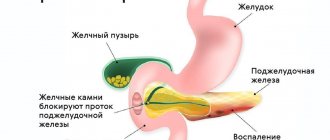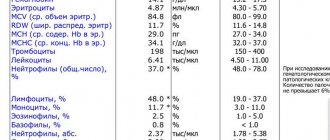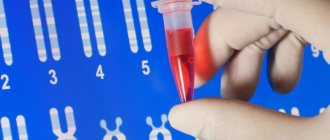Sleep disorder, restlessness, increased anxiety, irritability, emotional instability, high fatigue - familiar phrases for a modern person who often faces psycho-emotional stress and stress. When these and similar conditions affect the quality of life, the attending physician may prescribe Phenibut, a nootropic medicine that improves cognitive abilities and has a mild tranquilizing effect. This combination allows you to simultaneously maintain performance and eliminate anxiety.
Phenibut is good for people who often experience anxiety and restlessness.
Action of phenibut
It has several different effects on the nervous system and mental state:
- Reducing anxiety and fear.
- Normalization of sleep, making it easier to fall asleep.
- Nootropic effect: by improving the metabolism of nerve cells, attention, memory and reaction speed are improved.
- Relieves symptoms of dizziness, stuttering, enuresis and tics in children.
- Anticonvulsant action.
- Analgesic effect.
- Improves endurance.
The mechanism of action is complex and is associated with a direct effect on GABA receptors, which leads to increased inhibition processes caused by gamma-aminobutyric acid.
Also, by improving blood microcirculation in the small vessels of the brain and reducing the processes of lipid peroxidation, it helps restore normal metabolism of nerve cells (neurons). Thus, it combines the effect of a tranquilizer (sedative) and a nootropic-vascular drug.
Interaction
The interaction of Phenibut with other medications is limited to joint use with any other tranquilizers, antipsychotics, sleeping pills, narcotic (opiates) and anticonvulsants, as the effects of both drugs are enhanced. In this case, it is necessary to reduce the dosage of both Phenibut and medications belonging to one of the listed groups. Also, it is necessary to take with caution drugs that have a toxic effect on the liver and blood system.
Indications for use
Phenibut is prescribed for both disease and non-painful conditions.
- Stress, overwork, lack of sleep, preparation for physical and mental stress and operations.
- Asthenia (asthenic syndrome, neurasthenia, VSD, astheno-neurotic state).
- Tension headache.
- Anxiety disorders: panic attacks, generalized anxiety disorder, phobias (fears).
- Neuroses, neurosis-like states.
- Personality disorders.
- Consequences of organic damage to the nervous system.
- Withdrawal state due to alcohol, drug addiction, smoking.
- Dizziness, Meniere's disease, motion sickness.
- Insomnia.
- Psychosomatic diseases.
- In children: stuttering, tics, enuresis, aggressiveness, developmental delay.
A prerequisite for taking phenibut is a doctor's prescription. Self-use is prohibited!
Adverse reactions
Non-standard manifestations occur in the initial stages of treatment, causing drowsiness, nausea, and headaches. Sometimes there is a sharp decrease or increase in blood pressure.
In some patients, Phenibut causes a number of side effects:
- increased irritability, anxiety, excitability;
- sudden dizziness, allergy symptoms (skin redness, rashes, itching).
In case of accidental overdose, patients experience:
- drop in blood pressure;
- vomiting, drowsiness, nausea;
- formation of kidney dysfunction with failure.
There is no special antidote. Therapy for the condition consists of gastric lavage and symptomatic procedures.
Phenibut addiction
With prolonged, uncontrolled use of phenibut, mental and physical dependence may develop. This may require special treatment from a psychiatrist-narcologist and subsequent rehabilitation. As a rule, cases of dependence on phenibut were observed in persons dependent on psychoactive substances who had a long history of drug addiction and who switched from using the drug to phenibut. The development of primary dependence on phenibut only after long-term use is extremely rare.
Contraindications
Phenibut is contraindicated during pregnancy
Despite the positive effect on the body and an impressive list of indications, the use of Phenibut may be limited. So, it is contraindicated in the following cases:
- individual sensitivity or intolerance to the components of the drug;
- pregnancy and breastfeeding;
- liver failure;
- erosions and ulcers of the gastrointestinal tract.
What is this?
Phenibut is a drug that has anti-anxiety and nootropic effects. Widely used in the treatment of various neurological and mental disorders. Phenibut is well suited for simultaneous:
- eliminating anxiety;
- maintaining clarity of thoughts;
- effective ability for mental and physical work.
The drug Phenibut contains several components - the main active ingredient and additional ones. The main active ingredient of Phenibut is aminophenylbutyric acid, full name gamma-amino-beta-phenylbutyric acid.
The active substance is obtained from a combination of gamma-aminobutyric acid (GABA for short) and phenylethylamine.
Gamma-aminobutyric acid ensures metabolism and increases the efficiency of brain cells. It is classified as a nootropic substance, that is, a means that increases the efficiency of intellectual work, concentration and memory.
The second component of the drug, phenylethylamine, has the effect of a tranquilizer and an anti-anxiety agent. According to reviews, Phenibut reduces feelings of anxiety and attacks of fear, panic, enhances performance and normalizes sleep.
Together, GABA and phenylethylamine act as a nootropic activating agent with an anti-anxiety tranquilizer effect. It is this combination that increases the intellectual functioning of the brain under conditions of severe stress and the need to get rid of anxiety and other nervous conditions.
In addition to the main substance, the medicine contains auxiliary substances, such as lactose (milk sugar), potato starch, and calcium stearate. These substances enhance the properties of Phenibut, improve the effect on the body and prolong the effect of its use.
The question often arises: Is Phenibut an antidepressant or a tranquilizer?
As mentioned above, Phenibut simultaneously has a psychostimulating and tranquilizing effect, and in addition it also has an antioxidant and antiplatelet effect. The medicine is often used as an antidepressant because it increases the level of dopamine, the “happy hormone.” In addition, it has a mild tranquilizer effect. You can buy Phenibut without a prescription.
Phenibut quickly and effectively removes feelings of tension, emotional abnormalities and neuroses. Most doctors classify Phenibut as a nootropic drug with an anti-anxiety effect. But in some cases it is used in treatment precisely as a tranquilizer.
The international nonproprietary name of the product is Phenibut or gamma-amino-beta-phenylbutirate hydrochloride, after the name of the main active ingredient.
conclusions
Phenibut is an effective drug that combines sedative and nootropic effects with a wide range of indications for use. This is its advantage; it reduces neurotic disorders, but at the same time increases brain function and performance.
Many doctors prescribe Phenibut due to its effectiveness and speed of action, low toxicity, safety, and a small range of contraindications and side effects. Phenibut is used by athletes to improve their condition, and is used by astronauts. The drug is used to treat not only adults, but also children. It is important to follow the instructions for use to avoid unwanted effects.
In the modern world, people are constantly surrounded by stress in their daily lives. Many experience daily frustrations over trifles, nervous breakdowns, difficult life circumstances, family tragedies, and the development of anxiety. In order to cope with such conditions and at the same time remain capable of high intellectual activity and physical labor, it is recommended to take Phenibut.
Instructions for use
Before you start using Phenibut, you need to study the instructions for its use and agree on the dosage and dosage plan with your doctor.
The most common recommendation is to take Phenibut in courses of 2-4 weeks; depending on the symptoms, the course of treatment is extended to 4-6 weeks. The duration of treatment according to the time of admission for each patient is determined by a qualified medical specialist based on symptoms and individual characteristics. May vary depending on changes in the patient's condition, the presence of contraindications or side effects. Between courses of Phenibut you need to take at least two weeks.
The annotation for Phenibut states that the average dose per dose for patients over 14 years of age is in the range of 250-500 mg, sometimes up to 750 mg. It must be remembered that for each patient the dose size and frequency of taking Phenibut per day may vary individually.
To maintain the therapeutic effect, it is necessary to take the medication every 6-8 hours. The instructions indicate that Phenibut should be taken 3 times a day.
Many people are interested in the question: when to take Phenibut - before or after meals?
The medicine should be taken after meals to reduce the possibility of negative effects of the drug on the stomach and intestines. The tablet should be swallowed completely, without crushing or chewing it, with plenty of water (approximately 200-250 ml).
If one or more doses of Phenibut are missed, then you should simply continue the course according to the prescribed regimen. It is not recommended to take a double dose the next time you take it.
If there are no contraindications or other doctor’s recommendations for changing dosages, Phenibut is usually prescribed in usual doses:
- Adult patients with depression, neuroses and other similar disorders are usually prescribed 500 mg of Phenibut three times a day. If indicated, the dosage is increased to 750 mg.
- To restore normal sleep for insomnia, 250 mg twice a day is often prescribed.
- In accordance with the annotation, in order to eliminate dizziness, you need to take 250 mg of Phenibut three times a day.
- In cases of heavy mental stress, it is often recommended to drink 250 mg of medication per day.
- To prevent motion sickness, it is recommended to drink 250-500 mg of Phenibut at the first symptoms or 1 hour before getting into the place of expected motion sickness.
If Phenibut is prescribed to children, it is recommended to adhere to the following dosage sizes:
- children under 8 years of age - ranging from 20 to 150 mg three times daily;
- at the age of 8 to 14 years - the dose should not exceed 250 mg, the number of doses - 3 per day;
- Children over 14 years of age are prescribed doses similar to the dosages of Phenibut for an adult.
The medication is prescribed to children because it has low toxicity, is gentle, and has virtually no side effects.
When using Phenibut, you need to pay attention to contraindications for use. The medicine should not be taken if you are sensitive to the substances of the drug.
Under the supervision of a specialist, drink Phenibut with caution:
- during pregnancy and lactation (breastfeeding);
- under the age of 3 years;
- with liver failure;
- for erosions and ulcers of the intestines and stomach.
Do not mix Phenibut with alcohol to avoid negative consequences. Alcohol, when mixed with Phenibut, is quickly absorbed and excreted slowly. When mixed, the effect of stimulating GABA receptors is greatly increased, which can be dangerous for the body.
During the course of taking the medication, it is recommended not to engage in activities that require concentration, and not to drive various mechanisms or vehicles. This is especially true at the beginning of the course, since a drowsy state is possible, so taking Phenibut and driving is dangerous. If you abruptly stop taking the drug, withdrawal syndrome may develop, so drivers should make sure that any effect of the drug has already worn off.
Implementation procedure
According to the amendments made to the Order of the Ministry of Health on the sale of medicines, phenibut is dispensed from pharmacies only with a prescription. In this case, the pharmacist draws attention to the correctness of the document and the availability of basic information that is mandatory from the point of view of law:
- last name and initials of the patient;
- category. Taking into account the latest amendments made to the legislation, the nuances of filling out prescriptions have changed. Now, instead of the wording “chronic patient,” the doctor writes “patient with a long term of treatment.”
- Latin name of the drug and dosage. The last nuance is necessary so that the pharmacist at the pharmacy can calculate the required amount of phenibut, which will be enough for the entire period of treatment.
- Personal stamp, seal of the institution that issued the prescription. The doctor also signs the document to certify its authenticity.
When wondering whether Phenibut is sold with or without a prescription, you should answer that an appointment is required to dispense the drug in a retail chain. Therefore, before going to the pharmacy, you should first visit the clinic so that the doctor can issue a prescription for phenibut.










